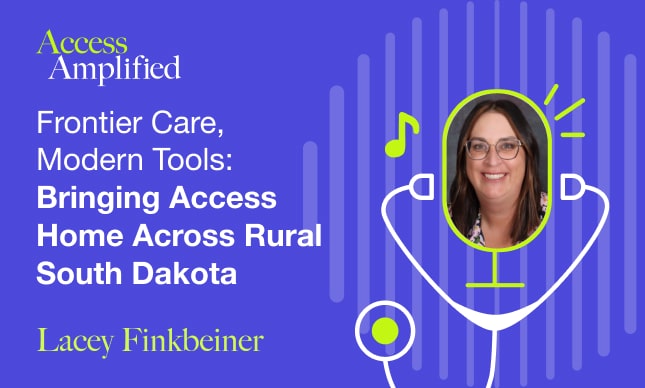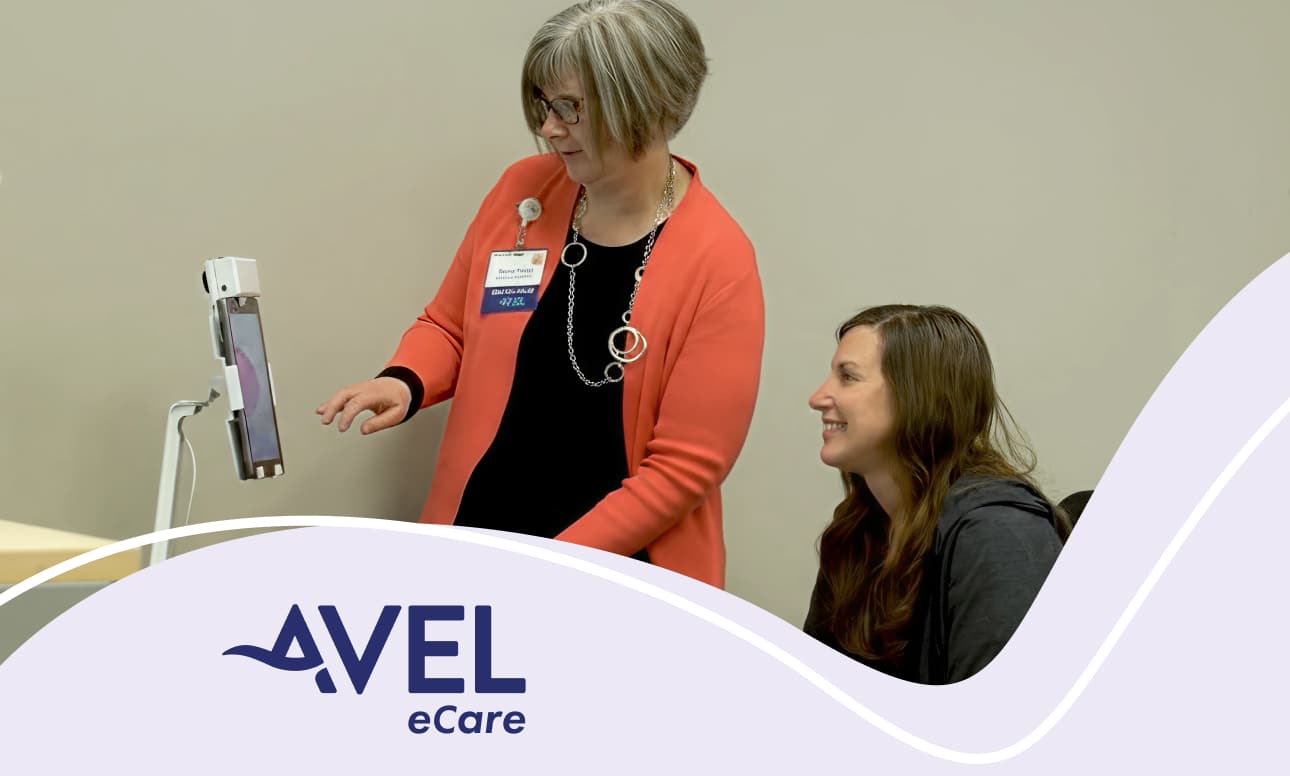Value-based Care: Its Vision and Virtues

Written by Elizabeth Hyatt
Healthcare is rapidly shifting towards value-based care models. What are the key components of value-based care, and how does virtual care fit into the picture?
What is value-based care?
Anyone following the evolution of healthcare has likely heard the terms fee-for-service vs. value-based care, but what is the difference between these two models? Value-based care (VBC) is a healthcare delivery model that incentivizes the quality, rather than the quantity of services delivered, as had been the case in traditional fee-for-service (FFS) models. Value-based care uses alternative payment models, in which providers are paid based on patients’ health outcomes and the quality of the services they provide.
VBC aligns with the Quadruple Aim – improving population health, stabilizing healthcare costs, enhancing the patient experience, and improving provider satisfaction. While different reimbursement models exist for VBC, these models generally base payment on performance and quality metrics, such as equitability, effectiveness, efficiency, safety, timeliness, and patient focus.
Fee-for-service models’ emphasis on care volume over care value has, in part, contributed to the ballooning of healthcare costs in the US, an issue that value-based care seeks to rectify. Experts believe that VBC’s growth will continue to accelerate, from today’s approximately $500 billion in enterprise value to a possible $1 trillion as the landscape matures.
The value-based care tech stack
In addition to embracing a new payment model, providers must consider the additional operational capabilities required to successfully participate in these innovative models. Time is critical to begin building your value-based care tech stack.
Value-based care’s technology stack enables the efficient and effective implementation of VBC through real-time data, automated workflows, and facilitated communication and collaboration among healthcare providers. The value-based care tech stack can include:
- Electronic Health Records (EHR) systems that store and manage internal patient data.
- Population health management platforms that are used to identify high-risk patients, deploy interventions and track outcomes.
- Clinical decision support systems that assist providers in making treatment decisions.
- Telemedicine systems such as TytoCare that provide remote care and monitoring. TytoCare’s provider-enabling technology sits within the VBC tech stack to accelerate providers’ ability to successfully manage risk and achieve VBC goals.
- Data analytics and reporting tools that measure and improve performance.
- Health information exchange (HIE) platforms that drive interoperability and share external patient data across different providers.
- Care coordination and patient engagement tools that facilitate effective communication and care plans between patients and providers.
- Financial and claims management systems that track costs and reimbursement.
Virtual care and value-based care
TytoCare’s virtual care directly aligns with value-based care, fitting in across key capabilities for VBC performance. TytoCare’s solution is cost effective while achieving goals across multiple verticals in value-based care.
Here’s how TytoCare facilitates VBC’s goals:
Remote care
TytoCare’s remote physical exam kits effectively deliver virtual primary care. TytoCare’s handheld solution is FDA-cleared and allows providers to make accurate diagnoses based on remote medical exams. Using TytoCare, providers can examine a patient’s throat, ear canal, blood oxygen levels, heart and lung sounds, skin, and more. 98% of TytoCare telemedicine visits require no further in-person follow-up, allowing for timely resolution for patient needs.
Clinical decision support
TytoCare’s AI layer guides patients as they conduct remote medical exams and continuously gathers quality clinical data that seamlessly integrates into a variety of EHR.
Patient engagement tools
TytoCare’s behavior-science-based member journeys support our partners in successfully implementing virtual care and promote member engagement. TytoCare’s member engagement services include our user engagement blueprints, user engagement expert advisory, and a full-stack user engagement engine.
Health equity
TytoCare increases satisfaction and builds trust between members and providers. Our solution conveniently serves members in their homes or communities, where they can seek care in a conducive, comfortable setting. TytoCare brings equitable healthcare access to underserved communities, such as vulnerable populations and rural dwellers.
For providers
TytoCare is a provider enablement tool with robust technology to help them manage populations, provide convenient care and succeed in value-based contracting arrangements.
For payers
TytoCare can serve as an enabling technology bundled within VBC contracting to incentivize providers to take on more risk – either by moving from one-sided to two-sided risk models, or to full global capitation for specific populations.
Value-based care’s future
Going forward, value-based care is expected to continue focusing on the use of data and technology to improve patient outcomes and control costs. Some of the trends that are likely to shape the future of value-based care include:
The increased use of AI and machine learning
These technologies help healthcare providers to efficiently gather and analyze large stacks of data and make more accurate predictions about patient outcomes. They can be used to track trends over time, identify rising risk, close care gaps and help develop personalized treatment plans.
A greater emphasis on patient engagement and empowerment
Value-based care’s future is likely to involve an even greater effort to engage patients in their own care and give them a sense of autonomy and control over their health. This could include health apps and other tools that let patients track their own health data and communicate independently with their multidisciplinary care teams.
More virtual care
The COVID-19 pandemic accelerated the adoption and consumerization of telemedicine and other forms of virtual care. This shift is likely to continue because virtual care enables convenience, increases access to care, reduces costs, and improves continuity of care.
An increased focus on health equity
The future of value-based care will likely involve more efforts to address and measure social determinants of health (SDoH), the social and economic factors that impact people’s health, such as housing, education, and income, to ensure that health outcomes are met equitably.
Making the shift to virtual-based care can be overwhelming, but having the right partner makes all the difference. TytoCare can help healthcare organizations deliver on the demands of value-based care. As value-based care continues to gain wider adoption, healthcare delivery will become increasingly patient-centered, data-driven, and technologically advanced. TytoCare’s virtual care solutions strongly align with VBC goals, supporting healthcare’s evident move towards value-based care models.





